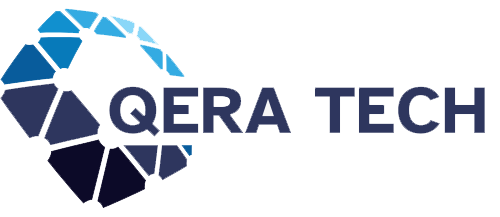When was the last time you scrolled through the web and felt overwhelmed by junk content? Endless clickbait headlines, auto-generated posts that barely make sense, and pages stuffed with ads rather than useful answers. That messy, low-quality flood has a name now: “slop.”
And Perplexity, one of the fastest-rising AI startups, says it has a plan to fight back. This week, the company announced that Comet — its $200-a-month AI browser — will now be free for everyone, forever.
That’s not a typo. A product that once carried a premium enterprise-level price tag is suddenly available to anyone, anywhere. The decision has already sent ripples across the tech world, with many wondering if this could be the moment the internet starts to shift away from quantity and back toward quality.
A $200 Tool, Now Free for All
Comet isn’t just another browser like Chrome or Safari. Think of it as a research assistant baked into your browsing experience.
Instead of clicking through 20 tabs, Comet can summarize web pages, extract the important bits, and even follow links for you to piece together the bigger picture. It’s the kind of thing every student, journalist, or professional researcher wishes they had in their toolkit.
Originally, though, there was a catch: Comet was only available to Perplexity’s “Max” subscribers at a jaw-dropping $200 a month. That kept it out of reach for most everyday users.
Now, CEO Aravind Srinivas says that the barrier is gone. Speaking at a launch event in San Francisco, he explained: “We want to build a better internet, and that needs to be accessible to everybody.”
There will still be rate limits on the free version, meaning you can’t use it without restriction. But the point is clear: Perplexity wants Comet to be in as many hands as possible, not locked behind a corporate paywall.
Why Free? The Battle Against “Slop”
If you’ve felt like the internet has gotten worse in recent years, you’re not alone.
AI has made it easier than ever to churn out text. Some of it’s good, but much of it is… well, sloppy. Articles that look polished at first glance but collapse under scrutiny. Reviews written by bots with no real product testing. “News” sites are built only for SEO clicks.
Srinivas put it bluntly: “Slop is fundamentally going to be easier to create now, and it’s going to be hard to distinguish if something is AI or human on the internet.”
Comet is Perplexity’s answer. Instead of wading through the swamp, it promises to filter out low-quality noise and guide users to reliable, meaningful sources. That pitch resonates, especially for people who use the internet for serious work or learning.
Taking a Swing at Chrome
Of course, the other subtext here is competition. Google Chrome still dominates the browser world, with more than 3 billion users. For all its scale, Chrome has been relatively cautious about adding AI features, only beginning to roll some out recently.
Perplexity clearly sees an opening. By making Comet free, it’s casting itself as the anti-Chrome: nimble, AI-native, and unafraid to shake things up.
At the launch, Srinivas even pointed out how “long-promised AI browsers from legacy companies” have failed to deliver, subtly calling out tech giants that have dragged their feet.
That said, Chrome’s dominance is a massive wall to climb. Comet reportedly has millions on its waitlist — impressive, but still a drop compared to Google’s billions. The question is whether being free (and smarter) is enough to chip away at that lead.
Journalism in the Crosshairs
One of the most surprising parts of the announcement was Perplexity’s new media partnerships. For $5 a month, users of Comet Plus can unlock content from premium outlets like CNN, The Washington Post, Fortune, the Los Angeles Times, and Condé Nast (home to Wired and The New Yorker).
It’s a clever move. Instead of just pointing to journalism, Perplexity is now sharing revenue with publishers, giving them 80% of the subscription fees. That’s a big contrast to the accusations the company currently faces in court.
Dow Jones (parent of The Wall Street Journal) and the New York Post are suing Perplexity, claiming its AI steals their content without permission. Perplexity has denied those claims, and Comet Plus seems like a strategic response: “See? We’re paying publishers fairly, and we’re serious about quality journalism.”
As Srinivas put it, “We have always been clear that a product like ours requires high-quality sources to exist on the web.”
It’s a reminder that in the war against slop, good reporting is still the frontline defense.
A $34 Billion What-If
If all this wasn’t bold enough, here’s a nugget that almost sounds like science fiction:
Last month, when the U.S. government was reviewing Google’s monopoly case, Perplexity made a $34.5 billion bid to buy Chrome in the event that Google was forced to spin it off.
Yes, you read that right — $34.5 billion, offered by a company whose last valuation was around $20 billion. It didn’t happen (the government let Google keep Chrome), but it shows the kind of ambition Perplexity has.
Srinivas insists he’s “not disappointed” that the deal didn’t happen. To him, Comet isn’t really competing as a browser at all. It’s more like a personal AI assistant that just happens to look like a browser.
Or as he explained: “That’s kind of how Microsoft would approach things. We see Comet differently.”
Why This Move Matters
So, why should the average internet user care about any of this? A few reasons stand out:
-
Access to AI tools is being democratized. Something once priced like enterprise software is now free for anyone with Wi-Fi. That levels the playing field.
-
The quality vs. slop battle is real. With AI flooding the web, tools that actually help filter truth from noise could become essential.
-
Publishers finally have a stake. If Comet Plus succeeds, it could set a new precedent where journalism gets compensated fairly in the AI era.
My Take: The Internet’s Next Fork in the Road
I remember when Chrome first launched in 2008. It felt sleek, fast, and revolutionary compared to clunky Internet Explorer. Almost overnight, it redefined how we browse.
Comet feels like it’s trying to do the same thing — but with AI at its core. Whether it succeeds depends on whether people actually trust it and adopt it. Free is a powerful motivator, but convenience and habits are even stronger. Many of us are deeply tied to Chrome, Safari, or Edge. Breaking that inertia won’t be easy.
Still, I can’t help but feel this move is bigger than just browsers. It’s about how we experience the web itself. Do we keep drowning in AI-generated fluff, or do we find ways to surface the real, the useful, the trustworthy?
Here’s What This Really Means
The Perplexity Comet price drop is more than a marketing stunt. It’s a statement: the future of the internet can’t be built on slop. If we want AI to be useful, it has to stand on the shoulders of high-quality information not replace it with noise.
For everyday readers, this means we may finally get a tool that helps us cut through the junk and focus on what matters. For publishers, it offers a rare glimmer of hope that AI partnerships don’t have to be parasitic.
When you step back, it feels like we’re entering a new phase of the internet, one where quality becomes a survival strategy, not just a nice-to-have.

